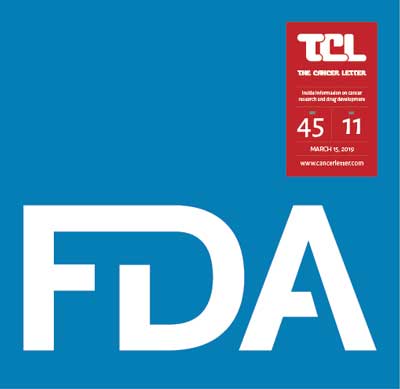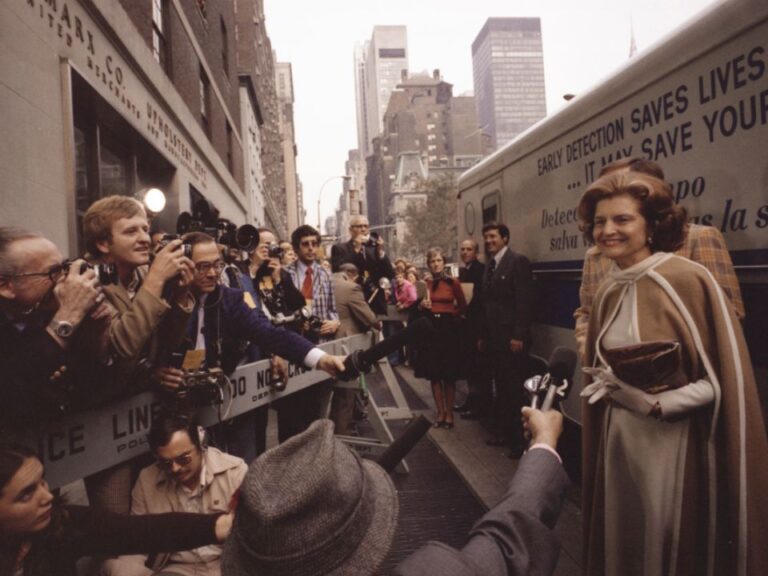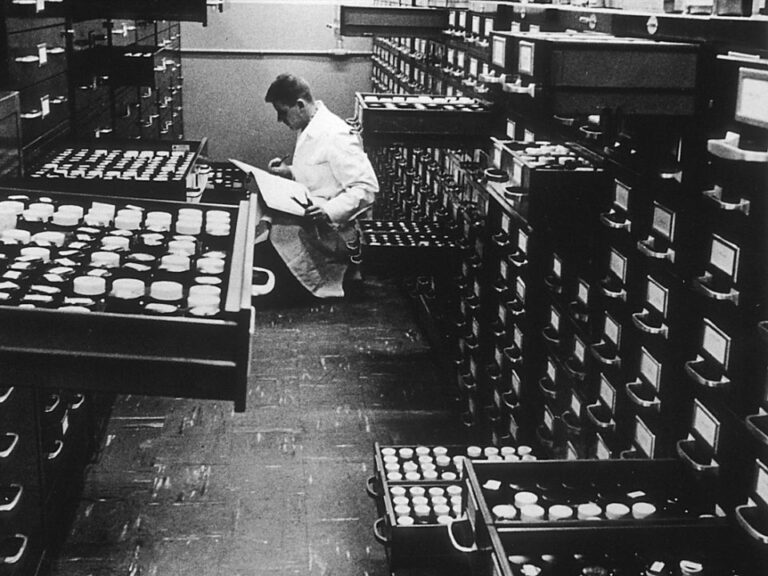We went through our analytics: here is what your colleagues in oncology read in 2019.
What are your colleagues reading in The Cancer Letter? Here are the highlights:
Robert Peter Gale‘s series on the HBO show ‘Chernobyl’ was read around the globe, and one piece was translated into Russian,
Robotic mastectomies performed at New Jersey’s Monmouth Medical Center became the epicenter of debate in an ongoing investigation into minimally invasive surgery and cancer-related surgical outcomes,
2019 was a big year for real-world evidence: a new FDA framework, an approval for Ibrance, and the completion of the Friends Pilot Project 2.0 on real-world endpoints,
Guest editorials by Etta Pisano, SWOG, and Wafik S. El-Deiry all top the list.
Top jobs in oncology came into play, with Scott Gottlieb stepping down at FDA, and NCI’s Ned Sharpless temporarily stepping in, to be later replaced by Stephen Hahn, formerly of MD Anderson Cancer Center.
2019 U.S. Nobel laureates William Kaelin and Gregg Semenza sat down with our reporters for a long chat.
Culture-changing issues came to the forefront:
Intellectual property theft,
NCI funding and paylines,
Gender bias in oncology, and the
Controversial red and processed meat guidelines.
Some older stories always make this list, too: Anil Potti, Ronald DePinho‘s resignation, and Amy Reed‘s obituary are part of The Cancer Letter‘s hall of fame.
Also of note, The Cancer Letter resurrected a series of stories about the late Bernard Fisher, his contribution to what we know about breast cancer, and his battle with Rep. John Dingell (D-MI) and his staff of investigators.
This list is compiled based on The Cancer Letter‘s web analytics, with related stories grouped for simplicity. All stories were originally published in 2019 unless otherwise noted.
Here is our Top 25 list
1. Chernobyl, the HBO miniseries: Fact and fiction


By Robert Peter Gale
Visiting Professor of Hematology,
Imperial College London
Executive director of clinical research in hematology and oncology,
Celgene Corp
Two weeks ago, HBO began screening a five-part series on Monday nights on the Chernobyl nuclear power facility (NPF) accident, which occurred more than 30 years ago on April 26, 1986.
The series focuses predominately on events leading to the accident, the scientific, social and political environments in the Soviet Union at that time and, to a lesser degree, on immediate and long-term medical consequences. The series is strong on the former, but weaker on the latter.
My goal in this guest editorial series is to give readers of The Cancer Letter a more nuanced view of what happened, emphasizing the immediate and long-term medical consequences of the Chernobyl NPF accident.
Related:
Skyfall falls to earth Why Americans and Russians should be worried (The Cancer Letter, Aug. 14, 2019)
2. Using a robot to perform mastectomies, a New Jersey surgeon sets off a firestorm over surgical outcomes


How much rigor should be required when surgeons innovate? FDA’s advisory asks for long-term cancer-related data.
As part of our multi-year investigation into minimally invasive surgery and cancer-related outcomes, we focused on the use of a robotic surgical device in mastectomies, finding a dramatic difference in the way top institutions view the procedure:
Memorial Sloan Kettering Cancer Center has expressed no interest in the procedure, dismissing it as a solution in search of a problem. Others, including MD Anderson Cancer Center and University of Pennsylvania, decided that robotic mastectomy warrants being studied in randomized clinical trials.
Our investigation initially focused on Monmouth Medical Center, a hospital in New Jersey that approved an “observational study” focused on patient satisfaction with robotic nipple-sparing mastectomy. The hospital advised the study’s principal investigator, Stephen A. Chagares, a surgeon who has no clinical trials experience, that FDA review was “not applicable.”
FDA begs to differ. The agency has not cleared the da Vinci Surgical System—the premier device for robotic surgery—for use in treatment or prevention of breast cancer.
In response to the growing use of robotically-assisted surgical devices as well as in response to questions from The Cancer Letter, on Feb. 28, 2019, FDA issued an advisory that states:
“The FDA is issuing this safety communication because it is important for health care providers and patients to understand that the safety and effectiveness of using robotically-assisted surgical devices in mastectomy procedures or in the prevention or treatment of cancer has not been established.”
In the Feb. 28 advisory, FDA indicated that device manufacturers looking to market surgical tools for use in the prevention or treatment of cancer may now be required to study long-term oncologic endpoints in surgical trials “for time periods much longer than 30 days.”
Editor’s note: This story was updated and corrected.
Related:
Robotic mastectomy surgeon sues Monmouth, alleging defamation, antitrust violations (The Cancer Letter, Nov. 22, 2019)
How a New Jersey hospital used a misguided study of robotic surgery to wage an ill-fated war on breast cancer (The Cancer Letter, May 31, 2019)
MSK’s Kirstein: Robotic mastectomy not demonstrated to be safe for treatment or prevention of breast cancer (The Cancer Letter, April 5, 2019)
3. CMS dings MD Anderson on Medicare compliance, citing serious deficiencies in patient care


The Centers of Medicare and Medicaid Services has removed MD Anderson Cancer Center’s Medicare “deemed” status, which means that, until the Houston hospital demonstrates compliance with federal regulations, the institution is at risk of having its Medicare provider agreement terminated.
On June 3, CMS sent a letter to MD Anderson President Peter Pisters, declaring that the agency has found “substantial noncompliance,” based on “significant deficiencies” at the hospital.
4. How FDA, Pfizer, and Flatiron Health did it


Approval of Ibrance for men affords a glance at use of real world data
Real world data played a role in FDA’s recent decision to expand the indications for Pfizer’s drug Ibrance (palbociclib) to include men.
On April 4, Ibrance joined the ranks of cancer drugs that were approved partly based on data extracted from electronic medical records and other data related to actual experience with the drug, as opposed to clinical studies. Approvals relying on such data have been occurring infrequently, and it appears that they haven’t been analyzed systematically.
To determine how Pfizer, its collaborator Flatiron Health, and FDA generated and processed RWD and how the agency approached the resulting real world evidence, The Cancer Letter posed a series of questions to FDA, Pfizer and Flatiron.
Related:
How real world evidence was used to support approval of Ibrance for male breast cancer (The Cancer Letter, April 19, 2019)
5. FDA approves 19 new cancer drugs and biologics in 2018—and don’t forget two new endpoints and “real-time” review


Last year, FDA approved 19 applications for new cancer drug and biologics as well as 38 supplemental indications and four biosimilars, agency officials said.
“These advances in anticancer therapy included a landmark approval of the first histology-agnostic, biomarker-defined new molecular entity and approvals based on real-time data review and novel end points,” Gideon Blumenthal, acting deputy director of FDA’s Office of Hematology and Oncology Products and Richard Pazdur, director of the Oncology Center of Excellence at FDA, wrote in a Jan. 22 commentary published in Nature Reviews.
Overall, in 2018, FDA approved 59 novel drugs, breaking its record of 53 drugs in 1996—with the largest share of approvals being in oncology.
6. Sylvester becomes 71st NCI-designated cancer center


Conversation with Stephen Nimer
Director,
Sylvester Comprehensive Cancer Center
After six years of aggressively recruiting and spending more than $250 million to build up its programs, Sylvester Comprehensive Cancer Center has become the 71st NCI-designated cancer center in the US and the only such institution in South Florida.
The designation was announced July 29.
7. TMIST PI Pisano: “Are we further reducing breast cancer mortality the more intensively we screen?”


Conversation with Etta Pisano
Chief research officer,
American College of Radiology
Radiologist,
Beth Israel Deaconess Medical Center
Professor in residence,
Harvard Medical School
The Tomosynthesis Mammographic Imaging Screening Trial, a massive randomized trial of early detection, is asking an important question:
Is digital breast tomosynthesis better than digital mammography in reducing development of advanced breast cancer?
“We’ve done a really good job of getting women in to get screened, and that’s good because we are undoubtedly saving lives through screening,” Etta Pisano, the PI of the study led by ECOG-ACRIN Cancer Research Group, said to The Cancer Letter. “The question is, are we further reducing breast cancer mortality the more intensively we screen?”
Related:
A comparison of study designs for estimating overdiagnosis in cancer screening (The Cancer Letter, May 3, 2019)
Estimating overdiagnosis is hard—we need all the help we can get (The Cancer Letter, May 10, 2019)
McCaskill-Stevens: Why I choose to play a dual role in TMIST (The Cancer Letter, May 24, 2019)
Curtis: Women are intrigued by the many questions asked in TMIST (The Cancer Letter, July 12, 2019)
8. NCAB asks for help from administration as NCI deals with deluge of grant applications


NCI and its advisors are stumped by a deep medical mystery: Why has the number of grant applications received by the institute grown by nearly 50% since 2013?
The answer here is all the more elusive, because the volume of applications at other institutes is either staying in place or has increased slightly.
Why are scientists rushing to seek grants from the cancer institute? Is this the outcome of excitement over rapid advancement in cancer science? Or is it something bureaucratic? Is it possible that the algorithm embedded in the NIH portal assigns a disproportionate number of grant applications to NCI?
Related:
Trump approves $212.5M increase to improve NCI success rates; FY20 spending bills provide new funding for childhood cancer, raise tobacco-purchase age to 21 (The Cancer Letter, Dec. 20, 2019)
Lowy: Paylines are dropping because NCI is drawing more applicants who would’ve previously gone elsewhere (The Cancer Letter, Dec. 6, 2019).
9. MD Anderson researchers ousted as NIH and FBI target diversion of intellectual property


Three faculty members at MD Anderson Cancer Center were sanctioned for failure to ensure confidentiality of review of NIH grants. The scientists also failed to disclose outside funding, academic appointments, and roles in laboratories outside the U.S.
As a result of this probe, two of these faculty members have resigned, and dismissal proceedings against the third are ongoing.
Related:
Moffitt CEO Alan List, director Thomas Sellers resign over conflicts of interests involving China (The Cancer Letter, Dec. 20, 2019)
10. Duke officials silenced med student who reported trouble in Anil Potti’s lab


Editor’s note: This story was published Jan. 9, 2015.
Duke University would have avoided embarrassment, a misconduct investigation and a lawsuit, had its top administrators paid closer attention to a thoughtful report by a medical student who saw problems in the lab of the disgraced scientist Anil Potti.
Documents obtained by The Cancer Letter show that Duke’s deans were warned about Potti’s misconduct in late March and early April 2008, at the time when clinical trials of the now discredited Duke genomic technology were getting started.
11. DePinho resigns as MD Anderson president, acknowledges shortcomings as administrator


Editor’s note: This story was published March 9, 2017.
Ronald DePinho announced on March 8 that he will be stepping down as president of MD Anderson Cancer Center.
DePinho’s five-and-a-half years at the helm of the world’s largest cancer center were marked by unprecedented turbulence, questions of conflicts of interest, and unhappiness on the part of the faculty.
12. MD Anderson’s Stephen Hahn emerges as candidate for FDA commissioner’s job


The game of musical chairs involving topmost jobs in oncology has gathered speed and expanded beyond FDA and NCI, pulling in premier positions at MD Anderson Cancer Center and Memorial Sloan Kettering Cancer Center.
The following chairs appear to be in play: FDA commissioner, NCI director, chief medical executive at MD Anderson, and, until recently, physician-in-chief at MSK.
Related:
Gottlieb resigns at FDA, recommends Sharpless as successor (The Cancer Letter, March 8, 2019)
Gottlieb Sharpless Lowy rearrangement (The Cancer Letter, March 15, 2019)
13. Amy Reed, physician and patient who “moved mountains” to end widespread use of power morcellation, dies at 44


Editor’s note: This story was published May 26, 2017.
When Amy Reed enrolled at the University of Pennsylvania medical school in 2001, she could not have possibly imagined that she would save more lives as a patient than as a physician.
The final phase of her medical education began on Oct. 17, 2013, when Reed, then 41, checked in at Brigham & Women’s Hospital—her husband’s workplace at that time—to undergo a common gynecological procedure that would fundamentally redefine her career, and, ultimately, consume her life.
Reed, a Pennsylvania native, died May 24 from complications stemming from disseminated uterine cancer. She was 44.
Related:
Noorchashm: “Biopsy your tumors”—with failed fibroid guidelines, gynecologists might as well be reading tea leaves (The Cancer Letter, Nov. 15, 2019)
14. Gynecology’s deadly surprise: Cancers are frequently missed prior to routine procedures


Editor’s note: This story was published May 18, 2018.
As they reach for surgical tools, gynecologists vastly underestimate the probability that their patients have undiagnosed uterine cancers, a study by Yale University researchers found.
Their paper, published in Obstetrics & Gynecology last month, is immediately relevant in the clinic, because a suspicion that cancer may be present dictates the choice of surgical techniques employed in gynecological procedures that are performed in about 650,000 women every year in the United States.
The newly calculated prevalence rates, based on analysis of data from 26,444 cases in the 2014-2015 American College of Surgeons National Surgical Quality Improvement Program, are staggering.
15. 20-year follow-up data are in: Prostate cancer prevention works; concerns about high-grade disease dismissed


By Ian Thompson, Jr.
Principal investigator,
Prostate Cancer Prevention Trial, SWOG Cancer Research Network
President,
CHRISTUS Santa Rosa Hospital – Medical Center
Phyllis Goodman
Managing biostatistician,
Statistics and Data Management Center, SWOG Cancer Research Network
Cancer Prevention Program,
Fred Hutchinson Cancer Research Center
Catherine Tangen
Deputy director,
Statistics and Data Management Center, SWOG Cancer Research Network
Member,
Cancer Prevention Program, Fred Hutchinson Cancer Research Center
Prostate cancer is the most common solid tumor in men. It has been estimated that 60-75 percent of men will have histologic evidence of prostate cancer during their lifetime and that 2-4 percent of men will die of the disease. African American men are at a greater risk of diagnosis and death.
While early detection has been found to reduce death from the disease, it comes at a great human cost: 781 men must be screened and 27 men must be treated to prevent one prostate cancer death.
16. Thomas Jefferson University vying to acquire venerable but troubled Fox Chase Cancer Center


Thomas Jefferson University is vying to acquire Fox Chase Cancer Center from its current owner, Temple University, the two institutions announced Jan. 10.
In a joint statement, Jefferson and Temple said they have signed an agreement that creates “an exclusive 90-day window within which to consider and negotiate the acquisition and conduct due diligence by Jefferson of the Fox Chase Cancer Center.”
No cancer center carrying an NCI designation has ever been sold on open market.
Related:
Fox Chase acquired by Jefferson in definitive agreement with Temple (The Cancer Letter, Dec. 20, 2019)
17. Bernard Fisher: Anatomy of a Scandal


Editor’s note: A series of stories by Mackenzie Carpenter and Steve Twedt, Pittsburgh Post-Gazette staff writers, originally published in 1994.
On a single day in March, Dr. Bernard Fisher of Pittsburgh, the country’s pre-eminent breast cancer researcher, saw his own career crumble, and watched helplessly as the research organization he had led through unprecedented advances in the treatment of breast cancer was abruptly shut down.
It was a shattering experience for the scientists who had spent decades on the work. And for women around the country who suffer from this deadly disease, it was a disturbing setback.
These dramatic developments were the result of another doctor’s misguided actions, years ago and miles away. A Montreal surgeon — one of about 5,000 doctors to join Fisher’s study group — had begun to falsify the paperwork of some of the patients he enrolled in several studies. Mostly, they were small changes in the dates that determined whether women met the deadline for enrolling in the studies. His actions, which involved 99 women out of the nearly 34,000 in North America who participated, did not seem to change any of the important medical conclusions the studies reported.
Related:
When Bernie Fisher refused to grovel (The Cancer Letter, Nov. 1, 2019)
Added indignity: NIH labels Fisher’s papers as “SCIENTIFIC MISCONDUCT” (The Cancer Letter, Nov. 1, 2019)
18. E-cigarette smoke associated with lung cancer, inflammation, as federal agencies respond to vaping deaths


E-cigarette smoke, like tobacco smoke, may, in fact, cause cancer, new studies suggest.
According to one just-reported study, mice exposed to e-cigarette smoke were five times more likely to develop lung cancer, and 10 times more likely to develop precancerous lesions of the bladder.
Another study found that a specific vaping component led to lung inflammation, a result of short-term e-cigarette use on the lungs. Inflammation often presages medical conditions that include bronchitis, asthma, heart disease, and cancer.
Peter Shields, thoracic oncologist at The Ohio State University Comprehensive Cancer Center and a study author, said this study is the first experimental demonstration of an impact of e-cigarette use on inflammation in the human lung among never-smokers.
Related:
FDA guidance restricts e-cigarette flavors, leaving tobacco and menthol on the market (The Cancer Letter, Jan. 3)
19. It’s time to rethink peer review policies—and consider an “Earth Shot Program”


By Wafik S. El-Deiry
Director,
Joint Program in Cancer Biology
Brown University and Lifespan Cancer Institute
Associate dean,
Oncologic Sciences
Warren Alpert Medical School, Brown University
Research professor,
American Cancer Society
At a recent NIH study section that I chaired, we had many applications that we reviewed as a group before the meeting. At the meeting, we were required to discuss over 50% of the grants.
In recent years, the number of grants being discussed at meetings has been steadily increasing, as the number of submissions has been growing.
Assigned reviewers give thorough reviews, and then there’s a general discussion, summary and voting, along with recording of scores and discussion of the budget. Recent mandates include discussion of scientific premise, rigor and reproducibility, authentication of resources, sex of mice used, along with the various review criteria.
20. U.S. Nobel laureates tell us what they think about cancer research, moonshots, the dark side, funding, meritocracy, herd mentality, Trump, and joy


William Kaelin and Gregg Semenza have a message for young scientists: do science for its own sake—and enjoy it.
“What young trainees have to understand is that, at least for those of us who love science, getting to do science is a prize in and of itself,” Kaelin, Sidney Farber professor of medicine at Dana-Farber Cancer Institute, Brigham & Women’s Hospital, and Harvard Medical School, and a Howard Hughes Medical Institute investigator, said to The Cancer Letter. “If your goal in science is simply to get prizes and to get recognition, you may be doing it for the wrong reason, and you’ll probably, frankly, wind up being a miserable person, because there’s certainly some luck involved in winning prizes.
21. Artificial intelligence can entrench disparities—here’s what we must do


Editor’s note: This story was published Nov. 16, 2018.
Kadija Ferryman
Mozilla Open Science Fellow,
Data & Society Research Institute, New York
Lead investigator,
Fairness in Precision Medicine research study, which examines the potential for bias and discrimination in predictive precision medicine
Robert A. Winn
Associate vice chancellor for Health Affairs,
Community Based Practice Director,
University of Illinois Cancer Center
Professor of medicine,
Clinical professor of surgery,
University of Illinois, Chicago
Heinz Von Foerster, the renowned Austrian-American physicist and cybernetics scholar, declared that “information can be considered as order wrenched from disorder.” Ever-increasing amounts of digital data and new computational tools promise that technological developments such as artificial intelligence (AI) will bring order, clarity, and new solutions in multiple areas—from transportation to criminal justice.
Solutions are clearly needed in healthcare, particularly in the U.S., where high expenditures have not led to corresponding improvements in health outcomes.
Automated AI has been used in medicine since the development of computer-assisted clinical decision support tools in the 1970s, but recent advances in machine learning have produced stunning successes, such as the ability of computer programs to outperform radiologists in cancer diagnosis.
There is growing excitement for ubiquitous healthcare, where tiny wireless sensors are able to constantly monitor, collect and transmit health data.3 And while IBM’s Watson Health has faced some challenges with implementation, there is continued optimism and investment that combining big data with advanced techniques such as machine learning will lead to improvements in cancer diagnosis and treatment.
As excitement for AI in medicine abounds, there is, at the same time, a bleak picture of health disparities in the U.S., particularly in cancer.
22. Indiana University Simon Cancer Center becomes 51st NCI-designated comprehensive cancer center


Conversation with Patrick Loehrer
Director,
Indiana University Melvin and Bren Simon Cancer Center
Indiana University Distinguished Professor
H. H. Gregg Professor of Oncology
The Indiana University Melvin and Bren Simon Cancer Center has achieved comprehensive status—becoming the only NCI-designated comprehensive cancer center in Indiana.
“We are very proud,” said Patrick Loehrer, director of IUSCC, Indiana University Distinguished Professor, associate dean for cancer research, H. H. Gregg Professor of Oncology, and professor of medicine at IU School of Medicine. “The last time a Midwest institution received comprehensive status was 11 years ago for the University of Chicago.”
The cancer center received an “outstanding” rating by NCI reviewers and was awarded a five-year, $13.8 million grant that supports the center’s research programs and shared facilities. That marks an increase of 43 percent from the previous five-year funding period.
23. Don’t put red, processed meat back on the menu:


Cancer and dietary experts dispute controversial directive.
Global health organizations, federal health agencies, and cancer epidemiology experts say they aren’t swayed by just-published recommendations on consumption of red and processed meat.
An international group of researchers earlier this week published five systematic reviews of evidence and concluded that it’s okay for adults to continue to eat unprocessed red meat and processed meat at their average consumption levels.
The recommendation, made by the panel of 14 researchers from seven countries and published in Annals of Internal Medicine Sept. 30, runs contrary to almost all other existing guidelines.
Related:
Guyatt: Existing dietary guidelines for red and processed meat are based on slim evidence and are paternalistic (The Cancer Letter, Oct. 4, 2019)
Should you eat a kielbasa tonight? Six experts weigh evidence on papers debunking nutritional guidelines on red and processed meat (The Cancer Letter, Oct. 4, 2019)
Scientists spar over COIs, methodology of Annals guideline on red, processed meat (The Cancer Letter, Oct. 11, 2019)
Laine: Annals wouldn’t have published studies on red, processed meat “if we thought it was bad science” (The Cancer Letter, Oct. 11, 2019)
AICR’s Brockton: Annals studies on red, processed meat don’t change facts on health outcomes; also, funding is “murky” (The Cancer Letter, Oct. 11, 2019)
24. Real-world evidence at a glance: How a collaboration of “frenemies” produced common definitions for real-world endpoints


Ten health care research organizations, with help from FDA and NCI, have developed a set of common definitions for real-world endpoints, including overall survival, progression-free survival, and other non-traditional endpoints.
The new common definitions are published as part of a pilot study led by Friends of Cancer Research, which announced the conclusions of this phase of the project at a recent gathering in Washington, D.C.
At the Sept. 18 event, the 8th Annual Blueprint for Breakthrough Forum, a speaker nicknamed the collaboration “Frenemies of Cancer Research.” The suggestion set off a wave of loud, albeit nervous laughter, because the joke was on the nose—to collaborate, many of these companies had to set aside their competitive agendas, which made for an uneasy peace.
The companies that participated in the Friends Pilot Project 2.0 are: Aetion, CancerLinQ, Concerto HealthAI, COTA, Flatiron Health, IQVIA, Kaiser Permanente, OptumLabs, McKesson Life Sciences, Syapse, and Tempus.
Related:
Friends’ Allen: Real-world endpoints can be used to fill evidence gaps about performance of medical products (The Cancer Letter, Nov. 22, 2019)
Learning to harmonize: Ten health care research organizations tell us how they formulated common definitions for real-world endpoints (The Cancer Letter, Nov. 22, 2019)
25. “Call me Doctor.” How women in oncology are fighting for cultural change


A sense of foreboding descended on Narjust Duma as she sat at a presentation on drug-induced toxicities. The year was 2018, Duma was a 31-year-old second-year fellow at Mayo Clinic, and her discomfort stemmed from something other than the subject matter discussed.
Duma was attending a panel at the annual meeting of the American Society of Clinical Oncology, and on the stage were three physicians—one woman and two men.
The session chair, a man, introduced himself and the other man presenter by name and title. The woman—whom Duma knew to have the most experience and deepest understanding of the subject—was introduced by first name only.
Duma was taken aback.
Is oncology a field where men are introduced as “Drs. X, Y and Z,” while women get a “Jenny” or “Rashmi,” or “Heidi”? If this woman, despite being renowned for her expertise, can be so casually stripped of her title, how can a young oncologist like Duma hope to earn the same respect as a man with the same credentials?
“As she was being introduced by her first name—and she’s a full professor—I was thinking, then what are the hopes for me?” Duma said recently to The Cancer Letter.
Related:
Don’t call me Karen, Cheryl, Nancy, Reshma, Cornelia, Caryn, Sharon, … call me “Doctor.” (The Cancer Letter, Dec. 13, 2019)









